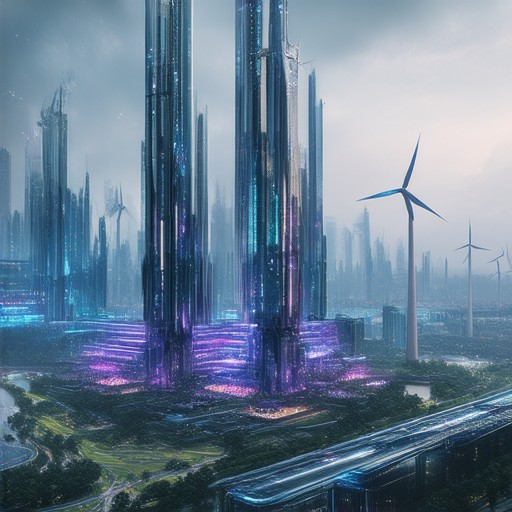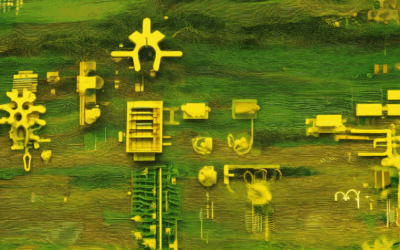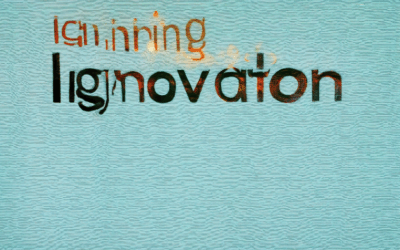In an era marked by rapid technological advancements, the concept of future-ready business technology has emerged as a cornerstone for organizations aiming to thrive in an increasingly dynamic and competitive landscape. As we approach 2025 and beyond, the demand for adaptive and innovative solutions has never been greater. Businesses that fail to embrace cutting-edge technologies risk falling behind, while those that proactively adopt future-ready strategies position themselves as industry leaders. This article delves into the transformative potential of emerging technologies, exploring how they can reshape operations, enhance productivity, and drive sustainable growth. From leveraging artificial intelligence and machine learning to fostering resilient workforces and ethical practices, the journey toward future-readiness is not just about staying ahead—it’s about anticipating change and leading the way.
Key Takeaways
- Adopt Digital Twin Ecosystems to enable real-time monitoring and predictive maintenance, optimizing decision-making.
- Leverage AI-Powered Decision-Making Tools for smarter business strategies and process automation.
- Implement Blockchain Technology to enhance security, transparency, and trust in your supply chain and data management.
- Incorporate Virtual Reality (VR) and Augmented Reality (AR) for immersive training, marketing, and customer engagement.
- Upgrade to 5G Networks for faster connectivity, supporting IoT and autonomous systems.
- Invest in Sustainable Energy Solutions to reduce costs and promote eco-friendly practices.
- Enhance Security with Biometric Authentication for robust cybersecurity measures.
- Integrate Robotics and Automation to boost efficiency in manufacturing and service delivery.
- Prepare for AI Evolution with smarter chatbots, autonomous vehicles, and personalized healthcare solutions.
- Harness Quantum Computing to solve complex problems in cryptography, drug discovery, and logistics.
- Explore Bioengineering Breakthroughs for personalized medicine and advanced agricultural techniques.
- Expand IoT Ecosystems with smart homes, wearables, and industrial applications.
- Adopt Decentralized Blockchain Applications for secure transactions and data storage.
- Invest in Renewable Energy for sustainable business practices and reduced operational costs.
- Pursue Space Exploration with private companies leading the way in commercial space travel.
- Immerse Yourself in AR/VR Experiences for gaming, education, and remote work.
- Usher in the Era of Web3 with decentralized finance and digital ownership via NFTs.
- Drive Sustainability Initiatives through advancements in renewable energy and carbon capture.
- Collaborate on Cybersecurity Measures to protect sensitive data and ensure secure communication.
- Embrace Remote Work and Hybrid Models with sophisticated collaboration tools.
- Evolve Education Technology for personalized and accessible online learning experiences.

What is the Future of Business Technology?
The future of business technology is rapidly evolving, driven by advancements in artificial intelligence, cloud computing, blockchain, and the Internet of Things (IoT). These innovations are reshaping industries, enabling greater efficiency, innovation, and customer-centric experiences.
Key Trends Shaping Business Technology
- Artificial Intelligence (AI): AI is becoming a cornerstone of modern business operations. From automating routine tasks to predicting market trends, AI helps businesses make smarter decisions and operate more efficiently. Companies like Iterati are leveraging AI to drive digital transformation and innovation.
- Blockchain Technology: Blockchain is revolutionizing supply chain management, financial transactions, and data security. Its decentralized nature ensures transparency and trust, making it ideal for industries like healthcare, finance, and logistics.
- Internet of Things (IoT): The proliferation of connected devices is transforming manufacturing, smart cities, and healthcare. IoT enables real-time data collection and analysis, leading to better decision-making and operational improvements.
- Augmented Reality (AR) and Virtual Reality (VR): AR and VR are being integrated into training programs, marketing campaigns, and customer experiences. These immersive technologies are enhancing employee productivity and customer engagement.
- Quantum Computing: While still in early stages, quantum computing promises to solve complex problems faster than traditional supercomputers. This technology could transform fields like cryptography, drug discovery, and optimization.
Challenges and Considerations
As businesses adopt these technologies, they must navigate challenges such as data privacy, ethical concerns, and digital inclusivity. Ensuring that AI systems are fair and transparent is crucial to building public trust. Additionally, businesses must invest in workforce development programs to prepare employees for the changing demands of the digital age.
Adopting Business Technology
To thrive in the future of business technology, companies should focus on creating scalable, future-proof solutions. Embracing hybrid cloud architectures, adopting AI-driven tools, and fostering innovation through collaboration with tech partners like Iterati can help businesses stay competitive. Moreover, prioritizing sustainability and ethical practices will be essential for long-term success.
By leveraging cutting-edge technologies and staying ahead of industry trends, businesses can unlock new opportunities, drive growth, and deliver exceptional value to their customers.
What is a Future-Ready Business?
A future-ready business is an organization that anticipates and adapts to future trends, challenges, and opportunities. It prioritizes resilience, agility, and innovation to thrive in an increasingly dynamic and complex world. These businesses are characterized by their ability to evolve continuously, embracing change while maintaining a strong focus on long-term goals.
Key Characteristics of a Future-Ready Business
- Agility : Future-ready businesses are nimble and adaptable, capable of quickly responding to market shifts and customer demands.
- Innovation : They invest in exploring new technologies, processes, and ideas to stay ahead of competition.
- Customer-Centricity : Understanding and anticipating customer needs allows these businesses to deliver tailored solutions.
- Technology Adoption : Proactive use of emerging tools like AI, blockchain, and IoT drives efficiency and innovation.
- Global Mindset : They operate with a global perspective, understanding cross-border implications and opportunities.
Components of a Future-Ready Business Model
A future-ready business operates through several key pillars:
1. Customer-Centric Operating Models
- Focus on delivering exceptional experiences across all touchpoints.
- Use data analytics to understand customer behavior and preferences.
- Invest in digital platforms to enhance customer engagement.
2. Workforce Agility
- Foster a culture of continuous learning and development.
- Encourage flexibility in how employees work and collaborate.
- Build diverse teams to drive innovative thinking.
3. Advanced Analytics and Decision-Making
- Leverage AI and machine learning for predictive insights.
- Optimize operations using real-time data and analytics.
- Implement robust feedback loops to refine strategies.
4. Ethical and Sustainable Practices
- Embed sustainability into core business practices.
- Adhere to ethical standards and governance frameworks.
- Communicate transparency in operations and impact.
Competitors and Market Position
While there are many competitors in the space, companies like McKinsey & Company , Deloitte , and PwC stand out for their forward-thinking approaches. These firms offer consulting and advisory services that help businesses become future-ready.
Call to Action
If your organization wants to become future-ready, consider adopting these strategies. Start by assessing your current capabilities, identify gaps, and create a roadmap for transformation. Partnering with experts like those at McKinsey & Company can accelerate your journey.

Understanding Future-Ready Technology
Future-ready technology refers to the ability of organizations and systems to anticipate, adapt to, and effectively respond to future trends, challenges, and opportunities. It encompasses a proactive approach to technology adoption and innovation, ensuring that businesses and societies are prepared for upcoming changes.
The Components of Future-Ready Framework
- Forward-Thinking Strategy: Organizations must cultivate a mindset that embraces innovation and curiosity. This involves continuously exploring emerging technologies and understanding how they can solve future problems.
- Investment in Research and Development: Allocating resources to develop cutting-edge technologies such as artificial intelligence, blockchain, and quantum computing ensures that companies are well-equipped to tackle future challenges.
- Smart Operations: Leveraging data analytics and automation to optimize processes and decision-making enables rapid responses to market shifts and customer needs.
- Collaboration and Partnerships: Working with other organizations, startups, and thought leaders fosters a culture of co-creation and knowledge exchange, driving innovation and resilience.
- Adaptability and Resilience: Building flexibility into operations and business models allows companies to pivot strategies when necessary, ensuring they remain competitive in dynamic environments.
- Continuous Learning and Talent Development: Investing in employee education and skill development ensures that workforces are ready to embrace new technologies and drive organizational growth.
- Focus on Security and Infrastructure: Strengthening cybersecurity measures and upgrading IT systems is crucial for safeguarding sensitive data and ensuring smooth operations in the future.
Competitive Edge Through Technology
Leading companies like AWS and Microsoft exemplify future-readiness through their investments in emerging technologies and commitment to innovation. These platforms provide scalable solutions that empower businesses to adapt to future demands effectively.
Inspiration and Resources
For further insights, Iterati.org offers valuable resources on digital transformation and sustainable solutions. Their articles and case studies provide practical strategies for organizations looking to embrace change and foster innovation.
Conclusion
Future-ready technology is not just about adopting new tools but cultivating a culture that thrives on adaptability and foresight. By integrating forward-thinking strategies, investing in innovation, and fostering collaboration, organizations can position themselves to succeed in an increasingly complex world.

What New Technologies Can We Use In Business?
Businesses are constantly evolving, driven by technological advancements that unlock new possibilities and efficiencies. Here are some cutting-edge technologies that can revolutionize operations, enhance customer experiences, and foster innovation:
- Digital Twin Ecosystems : Combining IoT sensors, physics-based simulations, and AI-powered analytics, digital twin ecosystems create virtual replicas of physical systems. These ecosystems enable real-time monitoring, predictive maintenance, and optimized decision-making.
- AI-Powered Decision-Making Tools : Advanced AI tools analyze vast datasets to provide insights, predict trends, and automate processes, enabling smarter business decisions at scale.
- Blockchain Technology : Blockchain enhances security, transparency, and trust in supply chains, financial transactions, and data management, offering robust solutions for decentralized systems.
- Virtual Reality (VR) and Augmented Reality (AR) : VR and AR are transforming training, marketing, and customer engagement, offering immersive experiences that drive productivity and customer satisfaction.
- 5G Networks : Ultra-fast 5G connectivity enables faster data transfer, improved communication, and the support of emerging technologies like IoT and autonomous systems.
- Sustainable Energy Solutions : Technologies like solar panels, wind turbines, and energy storage systems are promoting eco-friendly business practices and reducing operational costs.
- Biometric Authentication : Leveraging biometrics ensures secure access control, enhancing cybersecurity measures for businesses and their assets.
- Robotics and Automation : Robotic systems and automation tools optimize manufacturing, logistics, and service delivery, increasing efficiency and reducing human error.
These technologies not only drive innovation but also position businesses to adapt to future challenges effectively. By embracing these advancements, companies can achieve sustainable growth, enhance customer experiences, and maintain a competitive edge in their industries.
Future Technology in the Next 5 Years
The next five years will bring transformative advancements across various industries, driven by innovation and technological progress. Here’s a breakdown of what to expect:
Artificial Intelligence and Machine Learning
AI will continue to evolve, becoming more integrated into daily life. Applications like smarter chatbots, autonomous vehicles, and personalized healthcare solutions will become mainstream. Advanced AI systems will handle complex tasks, enabling faster decision-making and improved efficiency in businesses.
Quantum Computing
Quantum computing is expected to emerge as a game-changer, solving problems previously deemed impossible. By leveraging quantum entanglement and qubits, quantum computers will revolutionize fields like cryptography, drug discovery, and financial modeling, potentially reshaping global industries.
Bioengineering and Biotechnology
Breakthroughs in bioengineering will lead to groundbreaking treatments for diseases and advancements in synthetic biology. CRISPR-Cas9 technology will continue to evolve, enabling precise modifications in DNA, paving the way for personalized medicine and novel agricultural techniques.
Internet of Things (IoT)
The IoT ecosystem will expand further, connecting more devices and systems. Smart homes, wearables, and industrial IoT applications will dominate, enhancing productivity and improving our daily lives through better automation and real-time data analysis.
Blockchain and Decentralized Systems
Blockchain technology will play a pivotal role in shaping the future of finance, supply chain management, and data security. Decentralized applications will become more prevalent, offering greater transparency and trust in transactions and data storage.
Renewable Energy and Sustainability
The push toward sustainability will accelerate, with advancements in renewable energy technologies like solar panels and wind turbines. Energy storage solutions and carbon capture systems will improve, helping to combat climate change and promote eco-friendly practices globally.
Space Exploration and Colonization
Mars colonization will remain a significant focus, with progress in spacecraft technology and habitat construction. Private companies will likely lead the way, collaborating with governments to make space exploration more feasible and accessible.
Augmented Reality and Virtual Reality
AR and VR will continue to immerse users in digital experiences, with applications in gaming, education, and remote work. Enhanced versions of these technologies will offer more realistic and interactive environments, revolutionizing how we interact with information and entertainment.
Robotics and Automation
Robots will become more advanced, taking on roles in manufacturing, delivery services, and healthcare. Autonomous systems will streamline operations, reduce human error, and adapt to dynamic environments, driving efficiency across various sectors.
Cybersecurity and Data Protection
As technology advances, so will the threats. Cybersecurity will remain a top priority, with innovations in encryption, threat detection, and incident response. Protecting sensitive data and ensuring secure communication will be critical for maintaining trust in digital platforms.
These advancements highlight the exponential pace of technological growth, promising a future filled with possibilities. Staying informed and embracing these changes will be essential for anyone looking to thrive in the coming years.

What is Trending in 2025?
The year 2025 promises to be a transformative era marked by groundbreaking technological advancements, shifts in societal norms, and innovative approaches across various industries. Here are some key trends expected to shape the landscape:
- Artificial Intelligence (AI) and Machine Learning: AI will continue to revolutionize industries ranging from healthcare to transportation. Generative AI is expected to become more accessible, enabling creative professionals to leverage AI tools for content generation, design, and marketing.
- Quantum Computing: Progress in quantum computing will accelerate, promising to solve complex problems in fields like cryptography, drug discovery, and logistics. Companies like IBM and Google are already making strides in this domain.
- Web3 and Decentralized Technologies: The concept of Web3 will gain momentum, with increased adoption of decentralized applications in finance (DeFi) and digital ownership through NFTs. Platforms like Ethereum and Solana will continue to evolve.
- Metaverse and Virtual Reality (VR): The metaverse will become more integrated into daily life, with VR technology being utilized for gaming, virtual meetings, and immersive experiences. Major corporations are investing heavily in this space.
- Sustainability and Green Technologies: Investments in renewable energy sources like solar and wind power will grow, alongside advancements in electric vehicle technology and carbon capture solutions.
- Space Exploration: Private companies like SpaceX will continue to push boundaries, with commercial space travel becoming more accessible. Governments worldwide will also invest in lunar missions and deep-space exploration.
- Healthcare Innovations: Personalized medicine and telemedicine will see significant growth. AI-driven diagnostics and wearable health monitoring devices will play crucial roles in improving healthcare accessibility and outcomes.
- Fintech and Blockchain: Blockchain technology will solidify its position in finance, with more institutions adopting Bitcoin and Ethereum. Mobile payment systems like Alipay and Venmo will continue to dominate.
- Remote Work and Hybrid Models: The shift towards remote work will likely persist, with many companies adopting hybrid models. Office spaces will adapt to meet the needs of distributed teams, and collaboration tools will become even more sophisticated.
- Education Technology (EdTech): Online learning platforms will continue to evolve, offering more personalized and interactive experiences. Companies like Duolingo and Coursera will lead the charge in making education accessible to everyone.
- Cybersecurity: As connected devices proliferate, cybersecurity will remain a top priority. Advanced threat detection systems and AI-driven defense mechanisms will become standard.
In conclusion, 2025 will be a year of profound transformation, driven by technological innovation and shifting cultural attitudes. These trends will reshape industries, create new opportunities, and challenge us to adapt to a rapidly changing world.




0 Comments